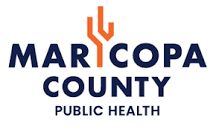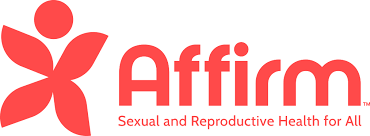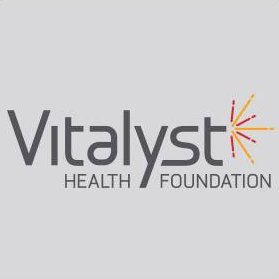Pima County Health Department has 10 paid summer internship positions open! These internships are located within various divisions throughout the department including Epidemiology, Consumer Health Vector, Clinical Services, Community Mental Health, Addiction, and Injury, Policy, Equity and Resilience, Cross Functional Operations and the Director’s Office. If you are interested in applying, please use the link below. These internships require a commitment of 400 hours minimum from May 28, 2024 – August 2, 2024.
Arizona Supreme Court Upholds 1864/1901 Law Banning Nearly All Abortion Care: Training this Friday to Circulate Petitions to Legalize Abortion
This Friday: Training to Circulate Petitions for an Arizona Constitutional Amendment that Would Legalize Abortion Care in Arizona
The Arizona Supreme Court today upheld a territorial-era law that will shortly end nearly all abortion care in Arizona. Today’s ruling held that Arizona’s pre-statehood law mandating 2 to 5 years in prison for anyone aiding an abortion “… unless it is necessary to save her (the pregnant person’s) life” is the law of the land. The court believes the territorial-era law banning nearly all abortion care supersedes the more recent law from 2022 that allowed most abortions up to 15 weeks’ gestation.
The court indicated that their ruling can’t be applied retroactively – suggesting that providers who have assisted with abortion care prior to today’s landmark ruling can’t be prosecuted and imprisoned.
Governor Hobbs issued an executive order last year giving all power to enforce abortion laws to the state attorney general as opposed to county attorneys as is normally the case. Attorney General Mayes has suggested she won’t prosecute providers providing abortion care. However, Hobbs’ executive order could easily be challenged by various county attorneys who intend to enforce the territorial era law.
Reproductive-Rights-in-Arizona-1864-2022
Criminal enforcement of the new law will depend on whether county attorneys challenge Hobbs’ executive order. The Arizona Department of Health Services, which regulates clinics and hospitals that provide abortion care, has largely administrative authority (e.g. ensuring licensed facilities comply with the ruling). It’s unclear whether or when ADHS will provide guidance to the clinics they regulate that provide abortion care. See: Abortion Care in Arizona – 2023
In any event, it’s likely that all clinics that provide abortion care will suspend that care within the next couple of weeks. Hospitals, which also provide some abortion care, will likely suspend most care. They’ll also need to develop criteria for determining what “… unless it is necessary to save her life” means.
Arizona Supreme Court Ruling: Planned Parenthood v. Mayes No. CV-23-0005-PR
Held: Simultaneous enforcement of the overlapping criminal and regulatory provisions of A.R.S. § 13-3603 and Title 36, including A.R.S. § 36-2322, does not facially violate physicians’ constitutional due process right to notice of their criminal and regulatory liability because the statutes clearly define the conduct prohibited and the punishment authorized.
Translation: Arizona Supreme Court holds that Arizona’s 1864 law prohibiting the provision of all abortion care unless the mother’s life is in danger is the law of the land. They believe the newer (2022) law limiting abortion care to 15 weeks does not apply and is superseded by the territorial era law.
Arizona for Abortion Access: Petition Circulator Training for AZPHA Members
Friday, April 12, 2024: 10:00 AM
Healthcare Rising Arizona is helping a coalition of organizations to collect signatures for a voter initiative to protect access to abortion care in Arizona. Healthcare Rising Arizona is offering a 1-hour online training event for AZPHA members who would like to become authorized to collect signatures for an amendment to the Arizona constitution the Initiative at 10am on Friday, April 12. After participating in the training, you’ll be authorized to circulate petitions.
During the one-hour webinar you’ll learn:
- Background and context for the Initiative and get messaging frames for the Arizona for Abortion Access Act;
- Procedures to properly collect petition signatures to ensure that the signatures are valid; and
- Learn strategies to avoid engaging with those who oppose the Initiative.
By the end of the training, you should feel comfortable collecting signatures (and know how to do so properly) and will learn how you can pick up petitions.
Register for the Training
View the Constitutional Amendment Language that Would Ensure Abortion Care in Arizona
Public Health Week & AZPHA Partners’ Spotlight: Emergency Preparedness
Each Spring the American Public Health Association celebrates National Public Health Week. We’re joining them locally by highlighting some of the work being done by our Organizational Members that focus on some of the areas related to this year’s theme: Protecting, Connecting and Thriving: We Are All Public Health
Public health is more than just health care. It’s the steps we take to make sure our neighborhoods and environment are free from pollution. It’s making sure our food and water are safe to eat and drink.
It’s also the relationships we foster in our communities. We’re all interconnected. When we all come together to support public health, all of us — individuals, families, communities, and the public health field — can achieve the goals of public health.
Theme 4 – Public Health Preparedness
Most public health emergencies are unpredictable. Disease Epidemics, Extreme Weather, Bioterrorism, outbreaks of new viruses and unpredictable patterns of spread are all challenges we face in emergency public health.
Others, like extreme heat in the desert are more predictable.
AZPHA organizational member Maricopa County Department of Public Health is the primary agency responsible for protecting the health and wellness of residents and visitors during a public health emergency in their county.
- They create emergency operating plans that guide response to public health emergencies: See their new report of heat-related deaths in 2023 and their evaluation of the effectiveness of a cooling centers investigated what brought people to cooling centers and the barriers that kept people from using them.
- Develop and support partnerships with the healthcare community, government agencies and private business
- Test our plans through drills and exercises
- Coordinate and run sites that will serve as emergency points of dispensing (PODs) where we will hand out life-saving medication during a large public health emergency
- Recruit and train volunteers to aid in a public health emergency. To join our Medical Reserve Corps volunteer program to assist in a Public Health emergency, JOIN HERE.
Public Health Week & AZPHA Partners’ Spotlight: Reproductive Health
Each Spring the American Public Health Association celebrates National Public Health Week. We’re joining them locally by highlighting some of the work being done by our Organizational Members that focus on some of the areas related to this year’s theme: Protecting, Connecting and Thriving: We Are All Public Health
Public health is more than just health care. It’s the steps we take to make sure our neighborhoods and environment are free from pollution. It’s making sure our food and water are safe to eat and drink.
It’s also the relationships we foster in our communities. We’re all interconnected. When we all come together to support public health, all of us — individuals, families, communities, and the public health field — can achieve the goals of public health.
Theme 3 – Reproductive & Sexual Health
AzPHA member Affirm’s goal is to create a future where everyone has the trust, support, and information they need to choose what’s best for them. They focus on making sexual and reproductive healthcare accessible to everyone, no matter who they are or where they come from.
Affirm — High-quality health services in AZ
With Title X funding, Affirm coordinates sexual and reproductive healthcare services, connects clients to caring providers, and offers inclusive health education. With added donor support, we advocate for evidence-based health policy at every level of government.
Affirm serves people in Arizona – especially youth, the underinsured and uninsured, low-wage earners, Indigenous communities, and other groups who have been systematically excluded from receiving care. Affirming the dignity of the people we serve is crucial to our approach.
Affirm believes people know what’s best for them. We break down barriers, provide crucial education, and bust stigmas so that everyone can make decisions with confidence and clarity.
Public Health Week & AZPHA Partners’ Spotlight: Healthy Communities
Each Spring the American Public Health Association celebrates National Public Health Week. We’re joining them locally by highlighting some of the work being done by our Organizational Members that focus on some of the areas related to this year’s theme: Protecting, Connecting and Thriving: We Are All Public Health
Public health is more than just health care. It’s the steps we take to make sure our neighborhoods and environment are free from pollution. It’s making sure our food and water are safe to eat and drink.
It’s also the relationships we foster in our communities. We’re all interconnected. When we all come together to support public health, all of us — individuals, families, communities, and the public health field — can achieve the goals of public health.
Theme 2: Healthy Communities
Where we live, learn, work and play have a greater impact on how long and how well we live than individual behaviors or health care. To improve the health and well-being of Arizonans, we must change the underlying conditions in our communities.
AZPHA works with the Arizona Partnership for Healthy Communities and their vision that all of Arizona’s communities should be healthy places to live.
Their unique approach brings the private and public sectors together to ensure that banks, health insurers, and health care providers are active partners alongside the government and nonprofit sectors.
- Their Live Well Arizona Incubator coaches teams that have identified a geographically-based health issue through the collaboration process and prepares the team to expand its work.
- They also provide technical help collaborations can be established, projects developed, and communities can thrive.
- Their engaging events offer cross-sector opportunities to share data, best practices, and policies to make our communities healthy.
Learn more about Arizona Partnership for Healthy Communities on their website
Public Health Week & AZPHA Partners’ Spotlight: Civic Engagement
Each Spring the American Public Health Association celebrates National Public Health Week. We’re joining them locally by highlighting some of the work being done by our Organizational Members that focus on some of the areas related to this year’s theme: Protecting, Connecting and Thriving: We Are All Public Health
Public health is more than just health care. It’s the steps we take to make sure our neighborhoods and environment are free from pollution. It’s making sure our food and water are safe to eat and drink.
It’s also the relationships we foster in our communities. We’re all interconnected. When we all come together to support public health, all of us — individuals, families, communities, and the public health field — can achieve the goals of public health.
Theme 1: Civic Engagement
“Civic health” refers to the civic, social, and political strength of a community. It includes civic engagement and reflects the community’s ability to unify to resolve problems. “Civic engagement” refers to the extent to which individuals and groups involve themselves in efforts to edify their community.
Since its founding, AZPHA Organizational Member, the The Vitalyst Health Foundation has connected, supported, and informed efforts that strengthen civic health. Volunteerism has been a key mission from the start, stemming from the robust groups of volunteers who provided charity care and helped at the hospitals.
As the foundation’s brand has evolved, so has its approach to strengthening civic health. Vitalyst has:
- connected residents through Arizona Town Hall for effective deliberations and consensus building;
- supported Arizona Gives Day, which inspires charitable giving and more donations to local nonprofits;
- supported place-based community development through the Live Well AZ Incubator; and
- informed legislation and public policy, and nonpartisan awareness building. These efforts represent opportunities for the community to engage in civic life toward the common good. They are examples of activities that build social and cultural cohesion, and ultimately civic health.
Civic participation improves civic health, increases the social connectedness of communities, gives participants a sense of belonging, and connects them to the people and resources they need to thrive.
Civic engagement includes full access to voting, which requires fair and inclusive voting systems. In a healthy democracy, inclusive voting systems end inequities in voter registration and voting turnout. Fair and inclusive voting means policies are in place to assure that everyone who is eligible to vote can register and vote.
Celebrate National Public Health Week by Watching ‘The Invisible Shield’ on PBS
The Four-Part PBS Series Exploring the Hidden Public Health Infrastructure in America That Saves Lives Every Day
This award-winning series reveals how the field of public health has saved countless lives, protecting people from the constant threat of disease, and increasing lifespans.
Using vivid character portraits, interviews, and archival elements, The Invisible Shield depicts public health as a progressive and revolutionary movement, whose successes have come from a diverse, cross-disciplinary coalition of dedicated public servants (like you) working together to improve the conditions of society.
The series looks to history to show how public health practices have emerged over centuries as humanity confronted problems arising from urbanization, industrialization, and globalization.
It examines public health’s major achievements — including the more than 30-year increase in life expectancy between 1900 and 2000 and the eradication of smallpox in the 1970s.
Public health challenges are also explored, including the COVID-19 pandemic, which highlights how misunderstood, undervalued, and underfunded public health is.
Episode 1: The Old Playbook Public health has transformed human life, silently protecting us from disease and fatalities. Interventions large and small — from quarantines to crosswalks, vaccines to modern sanitation — have allowed American society to flourish and keep illness, injury, and death at bay.
Episode 2: Follow The Data Data has been an essential public health tool since at least the 17th century, when cities began regularly recording mortality statistics. Data science has guided public health policy since the earliest practices of data collection in the 1800s to identify the spread of disease.
Episode 3: Vaccination & Inequity From the early days of vaccination in the late 1700s through the rapid development of the COVID-19 vaccine, scientists have achieved extraordinary feats to combat, contain, and eradicate disease — but solutions only work if people trust the science.
Episode 4: The New Playbook Inequality, structural racism, inadequate health care access, insufficient job protections, and a badly neglected public health system all contributed to catastrophic systemic failures.
All four episodes of The Invisible Shield are now streaming on PBS.org and the PBS App including Arizona PBS Passport – Arizona PBS
Note: Arizona PBS Passport is one of the benefits you receive when you support Arizona PBS by giving $5/month or $60/year. With Passport, you can stream your favorite PBS programs – full seasons of Masterpiece, episodes of Nova, Arizona Horizon, Nature, American Experience, Great Performances, Independent Lens and more.
FDA Recommends Dropping B Strain from 2024/2025 Influenza Vaccine – Moving to a Trivalent Shot
FDA’s Vaccines and Related Biological Products Advisory Committee met this month to make their recommendation for a formula for this year’s influenza vaccine.
The FDA is recommending influenza vaccine manufacturers drop the B/Yamagata lineage and just go with a trivalent vaccine this year (down from a quadrivalent vaccine that has been in place for many years).
The decision was rooted mostly in surveillance data and antigenic characteristics of recent influenza isolates. The committee recommended that the trivalent formulation of egg-based influenza vaccines for the U.S. 2024-2025 influenza season have the following:
- an A/Victoria/4897/2022 (H1N1)pdm09-like virus;
- an A/Thailand/8/2022 (H3N2)-like virus; and
- a B/Austria/1359417/2021 (B/Victoria lineage)-like virus.
Manufacturers will now begin making the vaccines for the 2024/25 season. The egg-based vaccines will get started first because of the long lead time needed for that process.
Selecting Viruses for the Seasonal Influenza Vaccine | CDC
The final step will be the CDC recommendations. The Advisory Committee for Immunization Practices will be meeting on June 26-28 to make their final recommendations, which will almost vaccine recommendations based on demographics like age, pregnancy etc.
ADHS Making Major Policy Changes to the Vaccines for Children Program
Goal Is to Stop & Reverse Vaccination Network Atrophy
ADHS will be making changes to many of their Vaccines for Children policies! The policy changes are in response to provider, stakeholder, parent & AZPHA advocacy urging the department to change their Vaccines for Children policies, decisions, and leadership.
Arizona lost 50% of our VFC providers during the Ducey era – going from 1,200 to 600 participating providers, reducing access to vaccine, lowering childhood vaccination rates, & harming overall AHCCCS network capacity.
Arizona now only has 6 VFC providers per 10,000 Medicaid eligible kids. The national average is 24 providers per 10,000 Medicaid kids… meaning Arizona has just 25% of the number of VFC providers per Medicaid enrolled kid compared with the national average.
Are We Finally Turning the Corner on Arizona’s Decaying Childhood Vaccination Network?
A workgroup organized by ADHS has met a few times this year to identify critical control points that have been running providers off and to recommended strategies to improve participation in VFC.
New CDC Report: Arizona Has Among the Lowest Childhood Immunization Rates in the U.S.
By all accounts, the new leadership in the vaccine program and preparedness service line have been receptive to the committee’s recommendations. ADHS has scheduled a webinar on Tuesday, April 9th at 9:00 a.m. to announce & discuss the upcoming changes and “… share insights, outcomes, and additional collaborative efforts for the future”.
Zoom Meeting on Tuesday, 4/9/24 at 9 am
Meeting ID: 834 5545 582 Passcode: 576904
Note: ADHS will soon be accepting applications for a new leader for the Immunizations Bureau and a new Assistant Director for the Public Health Preparedness service line (immunizations reports through public health preparedness).
Those positions are not yet posted, but y’all should put on your thinking caps and encourage strong candidates to apply when the posts open.
Public Health Journalism this Week
From veto to law: Hobbs signs the ‘tamale bill’ to loosen rules for food vendors • Arizona Mirror
Two GOP bills putting restrictions on SNAP are headed to Hobbs’ desk Arizona Mirror
Indigenous advocates host townhall for victims, families of sober living crisis (azmirror.com)
Why is it so difficult to teach sex-ed in Arizona? (azmirror.com)
Hobbs signs bills to ‘free the tamales,’ make Pluto the state planet (azcentral.com)
Sen. Theresa Hatathlie’s sober living bill blocked by fellow Democrats (azcentral.com)
A new cause of Valley Fever – Arizona PBS (azpbs.org)
2023 breaks record for heat-related deaths in Maricopa County – Arizona PBS (azpbs.org)






